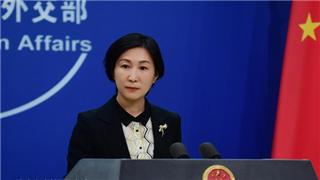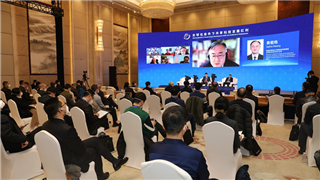
By Lin Yuan
French president Macron wrapped up his three-day US visit on December 2. Despite America’s efforts to put up an appearance of closeness, the two sides failed to reach an agreement on energy and trade issues.
Analysts said the conflict between the US and France revealed the deep-seated rift between the US and Europe, and the barely holding-up trans-Atlantic partnership is set for more challenges down the road.
US tried hard at a public display of affection.
This was Macron’s second state visit to the US since he became French president in 2017, and the host was trying very hard to demonstrate solidarity between the two countries.
To begin with, Macron was welcomed with high-profile and high-level hospitality. He is the first foreign leader received by Biden following the state visit protocol. During the visit, Biden called France America’s best partner, as Washington wanted to showcase their lasting friendship and vigorous bilateral ties.
The White House also made a big fanfare over the achievements of the visit. Biden and Macron released a joint statement after their meeting at the White House, in which both sides pledged to intensify cooperation in enhancing global security, tackling climate change, and strengthening strategic resources management and defense security.
France minced no words about its dissatisfaction.
The Inflation Reduction Act signed by Biden in August this year contained a slew of incentives including high subsidies to boost the production and application of electric vehicles and other green technologies in the US. The EU thought some of the articles in the Act were suspicious of trade protectionism, and the two presidents had heated discussions on the economic and trade subject during the visit.
France gave a public warning. When meeting with American Congress members of the two houses and business leaders on November 30, Macron pointed out that the industrial subsidy policy in the Inflation Reduction Act was trying to solve America’s problems at the expense of Europe’s benefit. He warned that such discriminatory subsidies may seriously hinder US-Europe relations and even cause a division in the western world.
US replied with a blunt no. During the meeting with Biden, Macron’s suggestion that the US side revises the Act and give European companies immunity was met with a direct no from the host, who said the US would never apologize for the Act, although it might fine-tune specific policies.
Western media commented that first the US suddenly pulled its troops out of Afghanistan without touching base with the NATO allies; then it secretly signed a nuclear submarine agreement with the UK and Australia, which cost France a huge deal; and now it is making a fortune out of war by selling energy and weapons and undercutting the European industry with competitive subsidy. Indeed, Uncle Sam has over and over thrown its allies under the bus at critical junctures without giving a heads-up.
US-France alliance is hard to repair.
Analysts said the US has never hesitated to harm the allies’ interests to protect its own. The Inflation Reduction Act has aroused strong discontent in European countries because it added to the strain on Europe which was already mired in an energy and livelihood crisis. The cross-Atlantic partnership is believed to face a grave challenge.
Taking the opportunity of the changing security situation in Europe, the US government has made a series of moves in 2022 leveraging its energy independence and domination in technology and war preparedness. In contrast, Europe has been hit hard by an energy crisis for following the US sanctioning Russia, its central bank is cornered by the US Fed’s massive hike in interest rate, and the development of a European force has made little progress due to America’s obstruction. As Europe can neither shake off its reliance on the US nor form internal cohesion in the foreseeable future, the cross-Atlantic partnership with America as a leader and Europe as the follower won’t change soon, nor will the strategic landscape in which the US stands to benefit at the price of Europe’s losses.
In general, the Biden administration is still following the “America first” diplomatic policy in spite of its ostensible efforts to side with allies. Its divergences with France or Europe on technology, energy, market and other matters manifest the conflict between the EU’s desire for independence and America’s pursuit of self-interests. As long as both sides hold fast to their current positions, the rift across the Atlantic may keep widening.











